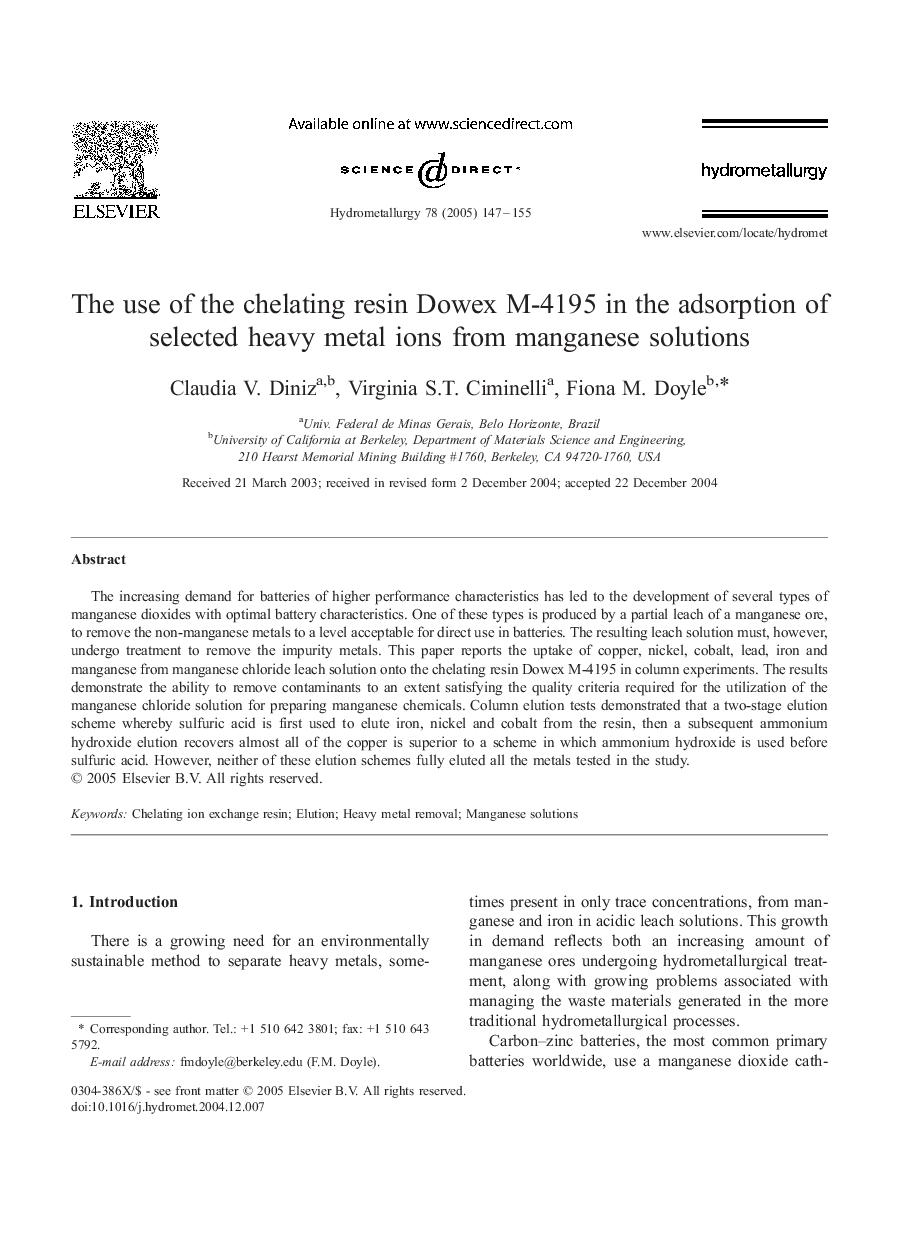| Article ID | Journal | Published Year | Pages | File Type |
|---|---|---|---|---|
| 9632535 | Hydrometallurgy | 2005 | 9 Pages |
Abstract
The increasing demand for batteries of higher performance characteristics has led to the development of several types of manganese dioxides with optimal battery characteristics. One of these types is produced by a partial leach of a manganese ore, to remove the non-manganese metals to a level acceptable for direct use in batteries. The resulting leach solution must, however, undergo treatment to remove the impurity metals. This paper reports the uptake of copper, nickel, cobalt, lead, iron and manganese from manganese chloride leach solution onto the chelating resin Dowex M-4195 in column experiments. The results demonstrate the ability to remove contaminants to an extent satisfying the quality criteria required for the utilization of the manganese chloride solution for preparing manganese chemicals. Column elution tests demonstrated that a two-stage elution scheme whereby sulfuric acid is first used to elute iron, nickel and cobalt from the resin, then a subsequent ammonium hydroxide elution recovers almost all of the copper is superior to a scheme in which ammonium hydroxide is used before sulfuric acid. However, neither of these elution schemes fully eluted all the metals tested in the study.
Keywords
Related Topics
Physical Sciences and Engineering
Chemical Engineering
Chemical Engineering (General)
Authors
Claudia V. Diniz, Virginia S.T. Ciminelli, Fiona M. Doyle,
